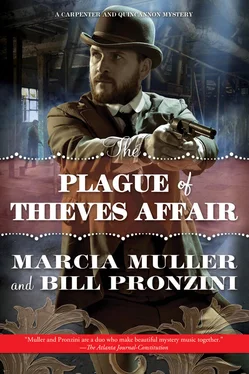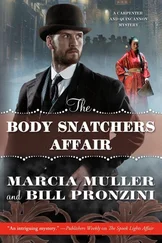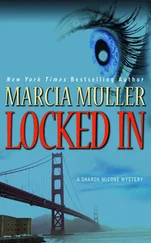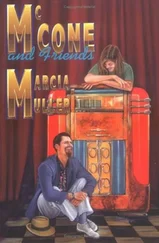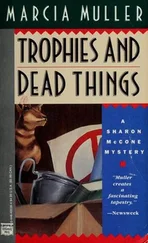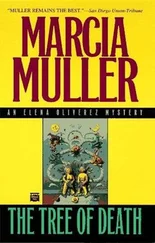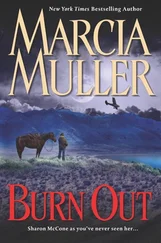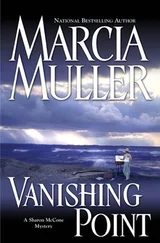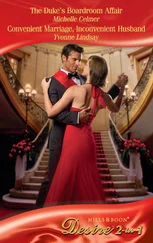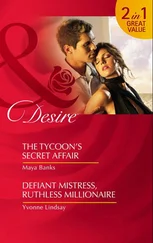They went outside and over into the side yard. The quarry sounds, dominated by the thudding grind of the rock crusher, made Drinkwater raise his voice when he said, “Rather noisy here. Tell me, do you have equipage or did you come by public transportation?”
“Hansom.”
“Ah. Will you accept a ride to wherever your next destination might be? We can speak freely in the comfort of my carriage.”
Quincannon saw no reason to refuse. “I will.”
The Whitechapel’s seat cushions were covered in tufted velvet of the same dark maroon as its exterior, and cloud soft compared to those in the hansom cabs. Quincannon had to admit that the carriage was a pleasure to sit in. And to ride in; extra strong springs kept the jarring and swaying as the wheels clattered over cobblestones to a minimum.
Once they were under way, Drinkwater asked him where he was bound and he said Market at Second Street would do. His growlingly empty stomach dictated the destination; Hoolihan’s Saloon, his favorite haunt since his Secret Service days, was on Second and its free lunch second to none in his estimation.
“Now then,” Drinkwater said. “What is it you wish to discuss with me, Mr. Quincannon?”
“Elias Corby, to begin with.”
“Corby? I don’t believe I know the man.”
“And Caleb Lansing.”
Drinkwater pretended to consider the name. “Lansing, Lansing. Isn’t he the poor soul who committed suicide at the Golden State brewery? I seem to recall reading about that in yesterday newspapers.”
“He didn’t commit suicide, he was murdered.”
“Murdered, you say? By whom?”
“His partner in the killing of Golden State’s brewmaster, Otto Ackermann, and the theft of Ackermann’s steam beer formula. Elias Corby.”
“How do you know all this?”
“I’m an expert detective, as you’re well aware.”
“Yes, I’ve heard of you and your accomplishments. But this man Corby. Just who is he and why come to me about him?”
“He is or was Golden State’s bookkeeper, a fact of which I believe you’re also well aware.”
“But I’m not. I told you, I’ve never heard of the man.”
“Xavier Jones had dealings with him. Lansing, too.”
“Jones? You mean my brewmaster at West Star? Are you suggesting he was involved in what happened at Golden State?”
“Directly involved. He’s the one who hired Corby and Lansing to steal the formula.”
The carriage slowed for a turn onto Market Street. Drinkwater tugged at one of his long Dundreary sideburns, sat frowning out the window for a few seconds before shifting his gaze, narrow-eyed now, back to Quincannon. “Hogwash. Why, Xavier Jones is a solid citizen, above reproach. He would never collude in such a crime.”
“He would if he was ordered to.”
“Who would issue such an order?”
“His employer, of course.”
Drinkwater stiffened perceptibly. The muscles in his bony face worked up an expression of indignation that was patently false. He said, making an obvious effort to retain his composure, “Are you accusing me of wanton theft and suborning murder?”
“Theft, if nothing else.”
“That is an outrageous falsehood. Outrageous, I say.”
“James Willard doesn’t think so. Neither do I.”
“I don’t care what Willard believes. Or what you believe, Quincannon. If you dare to make such a ridiculous accusation to the authorities or anywhere in public, I will have my lawyers sue you for slander, defamation, and grievous mental anguish.”
“I won’t. Not until I can prove it.”
“You’ll never prove it. Never.”
“Won’t I? I wouldn’t wager against it if I were you.”
Drinkwater glared at him for several seconds, his eyes glinting with the sharpness of knife points. Abruptly, then, he reached up to slide open the roof panel that allowed him to communicate with the driver. “Bruno, stop the carriage immediately. Immediately, I say!”
Bruno obeyed. The Whitechapel swerved to the curbing, came to a jolting halt. Drinkwater then pointed the ferruled tip of his umbrella at Quincannon as he would have pointed a pistol or long gun. “Get out,” he said angrily. “I’ll have no more of your company.”
“With pleasure, sir. My thanks for the ride and the illuminating conversation.”
“Get out!”
Quincannon took his time stepping down. With the door still open, he grinned in at the cadaverous rogue. “You’ll be hearing from me again.”
“If I do, you’ll hear from my lawyers.”
Drinkwater reached over to yank the door closed, then shouted up to Bruno to proceed. The carriage clattered off into the Market Street traffic.
Quincannon stood on the sidewalk looking after it, feeling well pleased with himself. He’d stirred the pot for fair and with the desired results. Satisfied himself beyond the slightest doubt that Cyrus Drinkwater was behind the theft of Otto Ackermann’s steam beer recipe. And served notice that he was not about to get away unscathed.
Saturday evening’s attendance at Reticules Through the Ages was somewhat smaller than Friday’s, despite the better weather. Still the ebb and flow of well-dressed ladies and gentlemen was substantial enough to please both Marcel Carreaux and Andrew Rayburn. Sabina, dressed in her second-best gown, a silk taffeta of pale gold, saw several familiar faces, including a few who had been present at the exhibit’s gala opening. The corpulent art connoisseur from Sacramento, Thaddeus Bakker, was one; the man with the pince-nez who had seemed offended by the French Brie was another.
The one person she didn’t see was Charles the Third.
She’d heard nothing from or about him after her unsatisfactory meeting with Roland Fairchild and his bitch (yes, bitch) of a wife. The small hope that he might attempt to contact her at the agency, or that word of him might come from one of her informers, had kept her there all afternoon. That hope was even smaller tonight.
But her main concern now that she was at the gallery again was the allegedly planned theft of the Marie Antoinette handbag. Was Charles the Third’s suspicion valid or not? There seemed to be no way a thief, no matter how cleverly professional, could manage to steal the bag in front of the watchful eyes of herself, Carreaux, Rayburn, his two clerks, and dozens of guests. The reticules were prominently arranged on tables set behind standards of red velvet rope, the display tables well lighted; no one could get close enough to them to snatch the Marie Antoinette and hope to get away with it. To even step over the ropes, much less touch any of the bags, was forbidden and cause for immediate expulsion.
Still, no matter how addlepated Charles the Third might be, the information he had gathered and imparted in the past invariably proved to be factual. And so she was extra vigilant tonight, carefully scrutinizing each new arrival, continually circulating among the guests with one eye always on the exhibition.
“Ah, Mrs. Carpenter. A pleasure to see you again.”
She turned to find Thaddeus Bakker at her elbow. His bow was rather clumsy, a product of his bulging midsection. “Good evening, Mr. Bakker. Back for another view of the treasures?”
“Indeed. San Francisco has many attractions for the visitor, but a marvelous exhibit such as this comes along but once in a lifetime. I felt I must see it at least one more time. It drew you again for the same reason, I trust?”
“Yes.”
He patted his corporation. “I must admit,” he said with a chuckle, “I also find the buffets to be splendid as well. A superb selection of food and drink, wouldn’t you say?”
“Oh, absolutely,” Sabina lied, remembering the dreadful anchovy and olive canapé she’d tasted the previous evening.
Читать дальше
